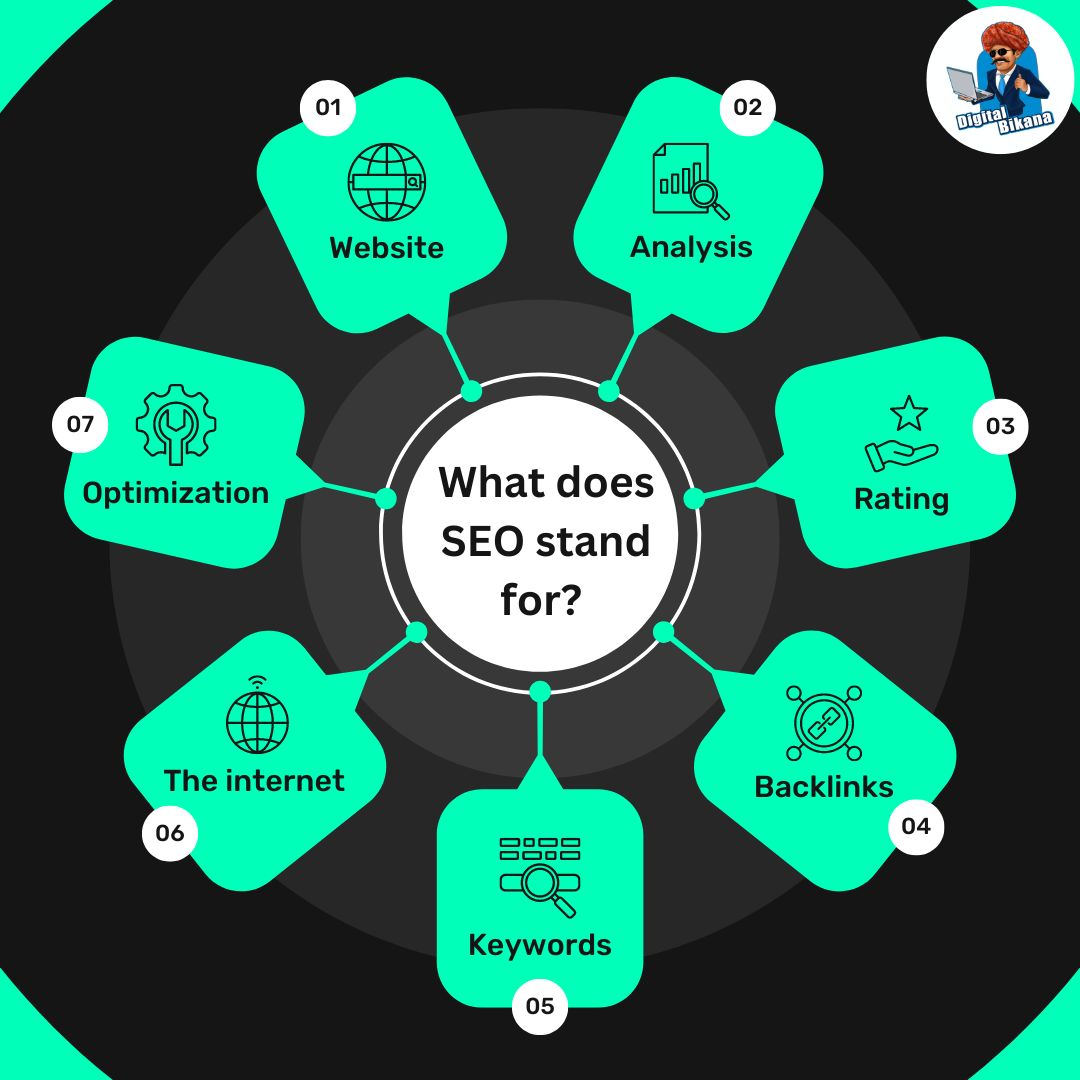What does SEO stands for?
In this article we are going to talk about What does SEO Stands for? In today’s digital age, where online visibility is crucial for businesses, understanding SEO (Search Engine Optimization) is paramount. SEO plays a pivotal role in improving a website’s organic visibility on search engine result pages (SERPs), ultimately driving targeted traffic and potential customers. This article aims to provide a comprehensive overview of what SEO stands for, its significance, and how it works to enhance online presence and visibility.
What Does SEO Stand For?
SEO stands for Search Engine Optimization. It refers to the practice of optimizing a website or web page to enhance its visibility and ranking on search engines such as Google, Bing, and Yahoo. The primary objective of SEO is to drive organic (unpaid) traffic to a website, improve its online reputation, and attract potential customers.
Understanding the Significance of SEO
With billions of websites competing for attention, search engines use complex algorithms to rank and display the most relevant and valuable content to users. Therefore, businesses and website owners must prioritize SEO to improve their website’s visibility and increase the chances of being discovered by their target audience. SEO is important for several reasons, and here are some of the main ones.
Increased Organic Traffic: By optimizing your website for search engines, you can attract a larger audience and increase organic traffic. Appearing on the first page of search results significantly enhances the chances of users clicking on your website.
1. Higher Visibility and Brand Awareness
Improved search engine rankings lead to increased visibility. When your website ranks higher on SERPs, more users will see and recognize your brand, resulting in improved brand awareness and credibility.

2.Enhanced User Experience
SEO involves optimizing various aspects of a website, such as site speed, mobile-friendliness, and user-friendly navigation. These improvements not only please search engines but also provide a better experience for visitors, leading to increased engagement and conversions.
3. Cost-Effective Marketing Strategy
Compared to other digital marketing techniques, SEO offers a cost-effective approach. While it requires time and effort, the results obtained through organic traffic can be highly valuable in the long run, providing a high return on investment (ROI).
Read Also: What is Search Engine Optimization (SEO) in Digital Marketing?
How Does SEO Work?
SEO involves a combination of on-page and off-page optimization techniques to improve a website’s visibility and rankings on search engines. Here’s an overview of the key aspects of SEO:
Keyword Research: Understanding the search terms and phrases your target audience uses is vital. Keyword research helps identify relevant keywords with high search volume and less competition, allowing you to optimize your content accordingly.
1. On-Page Optimization
This involves optimizing various elements on your website, such as meta tags, headings, content, images, and URL structure, to align with targeted keywords and provide a better user experience.
Technical SEO: Ensuring your website has a strong technical foundation is crucial. This includes optimizing site speed, mobile responsiveness, URL structure, sitemap creation, and proper indexing of web pages.

2. Content Creation and Optimization
Producing high-quality, relevant, and engaging content is key to SEO success. Creating informative articles, blog posts, videos, and infographics optimized with targeted keywords can improve your website’s visibility and attract more organic traffic.
3. Link Building
Acquiring high-quality backlinks from reputable websites is an important off-page SEO strategy. Think of backlinks as approvals or thumbs up from search engines. They show that your website is trustworthy and important by demonstrating its credibility and relevance.
4. User Experience and Engagement
Search engines consider user experience signals, such as bounce rate, time on site, and click-through rate, as factors for ranking. Improving these metrics through a user-friendly interface, intuitive navigation, and engaging content can positively impact your SEO efforts.
You can also checkout this digital marketing institute to learn digital marketing course by enrolling in our course Or Contact Digital Bikana on +91-8949483728
Conclusion:
SEO plays a crucial role in improving a website’s visibility, attracting organic traffic, and increasing brand awareness. By understanding what SEO stands for and implementing effective strategies, businesses can enhance their online presence, connect with their target audience, and stay ahead in the competitive digital landscape. While SEO requires continuous efforts and adaptation to algorithm updates, the long-term benefits it offers make it an indispensable tool for any website owner or marketer striving for success in the online world. So, Now I hope you have understood about the What does SEO stands for?

